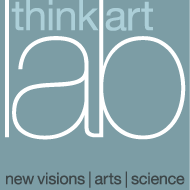DETAILED STATEMENT OF THE PROJECT.
For the last six years I have been exclusively engaged in research concerning the problem of a new - non-Aristotelian logic - as a basis of a revised form of our actual thinking.
My first book on Hegel (see list of publications Nr. 2) expounded the theory that a modern world-conception, adequate for our present and future needs, is no longer possible on the basis of traditional Aristotelian methods of thinking. My book postulated a more comprehensive system of logic which should be capable to take into account the results of quantum mechanics as well as the problems of social science and the humanities.
According to the general consensus of scholars and scientists such a logic does not yet exist. Apart from the present extensions of classical Aristotelian logic and its concomitant two-valued calculus we possess only an indifferent number of ontologically uninterpreted many-valued calculi which
could be used for a modern philosophical logic. But an uninterpreted calculus is
not a logic, and a new
material technique of thinking which might use one of these many-valued calculi is still missing.
I believe I have discovered in the course of the last few years an ontological (material) interpretation for the three-valued calculus. Such an interpretation would produce a new logic and permit actual methods of thinking which are not available within the reaches of our old logic. The general idea of my new theory of logical reflection has recently been published in the Proceedings of the 11
th International Congress of Philosophy in Brussels (vol. V, p.44-50) 1953. (See list of publication Nr. 14).
Our traditional logic, if formalized, uses a two-valued calculus. That means, it describes our acts of thinking as "psychological" events that take place between the two opposite poles of subject and object. The material theme of such a logic is to develop an applicable theory of the
isolated object in precise rational terms. The history of Western Science shows how successful this attempt has been - so far. However, this logic is one-sided because it concentrates all interest on the
object and ignores completely the problems of the subject. This might be illustrated by the following diagram:
The subject S centers his logical intention upon the object O. The arrow indicates the direction of the theoretical interest. This situation produced a theory of O. All the terms which describe O adequately are called "positive", and all the others "negative". This results in a two-valued logic.
But let us now assume that we want to develop a theory of the subject qua subject. In this second case our traditional two-valued pattern turns out to be insufficient. This must be so because we now need a logic which contains besides our first theme "object" an additional theme "subject". This demands the following three-valued scheme:
The aim of this second form of logical reflection is to develop a theory of the subject (indicated by S' ) as
different from the object. In other words we have now
two basic themes of logic. And each one is represented by a different value. However as we noticed in the case of the classical logic, the subject requires also a value. Consequently a technique of thinking, capable to add to the rational theory of the object a corresponding theory of the subject, needs three values.
�
A logic of the proposed type is urgently needed by the humanities and in the social sciences. In natural science - at least in its classical type - we need only the rational theory of the thing, in other words the object. The problem of the subject only enters when we reach the theoretical limits of natural science, as, for instance in quantum mechanics. However it is different in the humanities and social sciences. These disciplines are based on the laws of the
object as well as on additional laws which are peculiar to living subjects! It follows that only a logic based on a thee-valued calculus which developes this rational difference between subject and object will be adequate. The very fact that we do not yet possess such an additional technique of thinking geared to the needs of the social theories accounts for the difference of exactitude in the natural and non natural fields of research.
But the proof of a new logic is found in its application. I have therefore - after developing the basic categories of that new technique of thinking - applied my three-valued non-Aristotelian logic to the problem of History. If you look at American History with conceptual categories of non-Aristotelian origin this course of human events does not longer appear as a continuation of Western Civilization but as a novel departure from the general trend of history in the Old World of the Eastern Hemisphere. A new and indigenous form of historical existence is emerging in the New World of the Western Hemisphere - and with it goes a principal rejection (or technical secularization) of the metaphysical premises of Old World History. This is indicated in Thomas Jefferson's amazing criticism of Plato's "Republic" and his repudiation of the historical concepts implied in Plato' s philosophy.
My interpretation of American History is based an the following trend of thought: Generally speaking the history of Man has so far developed on two very different historical levels. The first is that of the so-called Primitive Culture with the concomitant metaphysical world-conception of animism. The animistic interpretation of Reality is the product of a mind which works with a one-valued logic. Here the subject is completely identified with the object, namely the world that surrounds it.
The following, second level of the history of Man is that of the so-called regional High Civilizations (Egypt, India, China, Greek/Roman and Western Civilization of northern Europe). In this second form of historical existence Man develops concepts of life based on a two-valued pattern of consciousness. It is significant that Aristotle's logic of duality was discovered in this era. Traditionally American History is regarded as belonging to that epoch. It is tacitly assumed that since the advent of Columbus America should be regarded as an extension of Western Civilization. It is my contention, on the other hand, that American History does not anymore belong to this second level which is characterized by the appearance of regionally limited High Civilization!
On the American continent a novel form of History is coming into existence, constituting a third level of World-History.
The structure of the human consciousness is changing and with it the spiritual aims of the race.Not the knowledge of natural objects but the science of Man himself will be the central core of all intellectual efforts. This, however, presupposes a new logic in which an exact theory of the subject as different from the mere object is developed. For this purpose a three-valued logic is absolutely necessary. The American mind is potentially non-Aristotelian ... or let us say: post-Aristotelian. The primitive mind is pro-Aristotelian, and the epoch of regional High Civilizations is dualistic. Only this dualistic mentality corresponds with the concepts of a two-valued logic.
During the last six years I have already written almost one thousand pages approaching my problem from different angles. Most of the text, however, has to be rewritten because I have only recently discovered the definite and final form of an ontological (Existential) interpretation of the three-valued calculus. I should like to add that my type of work has to proceed along two parallel lines. It is partly pure logical analysis, and partly it consists of testing newly found non-Aristotelian laws against the actual pattern of historical events.
My project - when it is ready for publication - will therefore comprise two volumes. Volume I will present the system, of a non-Aristotelian logic. Volume II will offer an example of a practical application of this logic to the problem of American History.
The nature of my work makes it necessary that both volumes are written concurrently and not consecutively. Because the formal theories of the first volume have to be tested against the applications in the second one. It happens sometimes that the application does not produce satisfactory results, and in this case the logical theory has to be checked for mistakes. This could not be done if the second volume would be written after the first one has been completed and already received its final shape. As far as I can judge now each volume will probably contain approximately five hundred pages in print.
Richmond, Va., September 28, 1953

